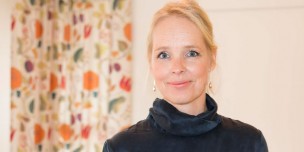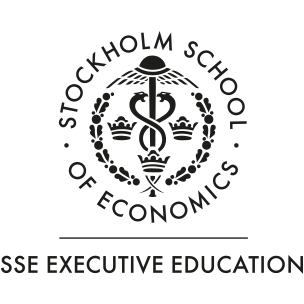New leadership requirements come with a focus on sustainability
Pernilla Petrelius Karlberg recently stepped in as program director of SSE Executive Education’s Executive Leadership Program, a role she shares with Robert Nobel. But Karlberg, who holds a Ph.D. in Business Economics, has more than one string to her bow than being the head of one of SSE Executive Education’s most prominent programs. As a researcher at the Stockholm School of Economics, her work involves developing knowledge about the interface between leadership, sustainability and leadership in a medialized world. We posed five questions to Karlberg on the subject of her exciting research.
 You conduct research on topics including “sustainable leadership.” Explain what this term means.
You conduct research on topics including “sustainable leadership.” Explain what this term means.
Companies and organizations today operate in an increasingly complex and fast-paced environment. This involves a variety of new requirements and expectations on management, many of which revolve around the organization’s taking more responsibility in a broader sense than in the past. It’s not just about what you do, but how you do it. Traditional leadership models have long been criticized, and we are studying how they can be developed and enhanced. We are following organizations and companies that have undergone a crisis, including often harsh media coverage, and that take a stand and go out and declare that they intend to make changes and become responsible. So, what is that that they do? How do they put leadership into practice?
Within this area, what do you think that Swedish businesses have most to learn today?
Sustainability is a hot topic that virtually all businesses and organizations are talking about. Yet at the same time many organizations find themselves just at the beginning of a journey where they need to revise their entire way of working, leading and managing. Sustainability affects so many different areas, of course. So far, the main focus has been on production and environment, but diversity management is something that will be brought into sharp focus well into the future. This is also related to the fact that organizations today operate in a global arena. The Swedish economy has been export oriented for natural reasons; as a small country, we’ve been forced to turn to other markets and become good at it. From a leadership perspective, translating local values such as sustainability to other markets presents a challenge – where do you draw the line for dialectal differences in the perception of human rights, or pluralism and corruption? These are issues that many organizations struggle with.
A particular focus of your research revolves around the challenges that leadership and corporate governance are facing in a medialized society. How has the business leader’s role changed with increased medialization?
Medialization has grown in importance since the 1980s, and today media savvy is a given in any leadership profile. As a leader, you are expected to understand and be able to act in relation to the logic and practice of media in a professional manner. We also see that companies and organizations are investing increasingly in their communications and that there are far more communicator and journalist resources today. There’s talk about “the edited company” as a phenomenon and the expression of a modern organization. That trend is expected to continue while form and content change character as the media landscape enables companies to create their own media channels and build relationships, both internally and externally. Medialization goes together with another leading social development that involves digitalization. It asks questions about how organizations can be both open and transparent, and about how all exposed content should be carefully thought out and prepared for examination in different media. For example, it is perceived as a good thing for companies to show off their sustainability efforts, yet by doing so the company sticks out its neck and risks the threat of scrutiny and criticism.
This rapid development may also impact how organizations organize themselves and actually operate in practice. Much points to the idea that social networks, meetings and relationships – both digital and physical – are becoming increasingly important and will claim more space in the workday.
You’ve recently been appointed director of SSE Executive Education’s Executive Leadership Program. In what way do you think your academic background helps you to develop the program?
I hope I can contribute with an academic approach to learning and to building knowledge, but also by training our students to reflect on their own expertise – something that today’s managers have very little time to do. In addition to offering many interesting lectures, seminars and workshops, our goal is to equip them with techniques and approaches for continued learning and knowledge development into the future.
What would you say are the main and most important experiences that the participants of the Executive Leadership Program gain after attending the program?
Self-confidence, inspiration and an amazing network! They get the time to immerse themselves in their own leadership and refine it. Then, of course, they get to enrich their knowledge even more with the latest research on general management and leadership. They obtain models and theories that they can directly apply in their own activities, and they have ample opportunity to exchange experiences, thoughts and ideas with others in similar positions but who operate in very different sectors or types of organizations. These kinds of interactions are therefore completely unique. The participants make contacts that last a lifetime, and they can always turn to these networks for inspiration and support.


